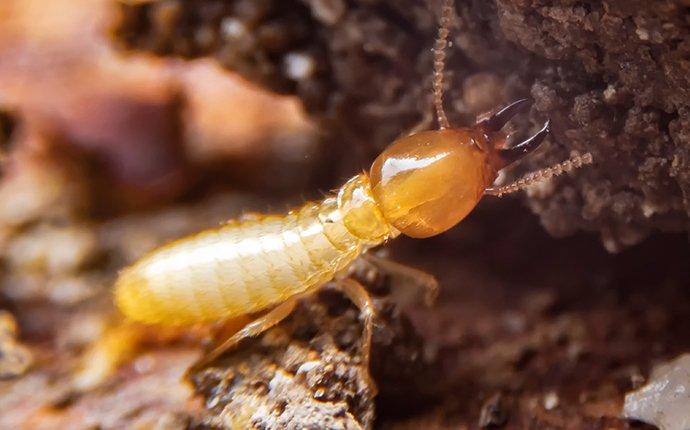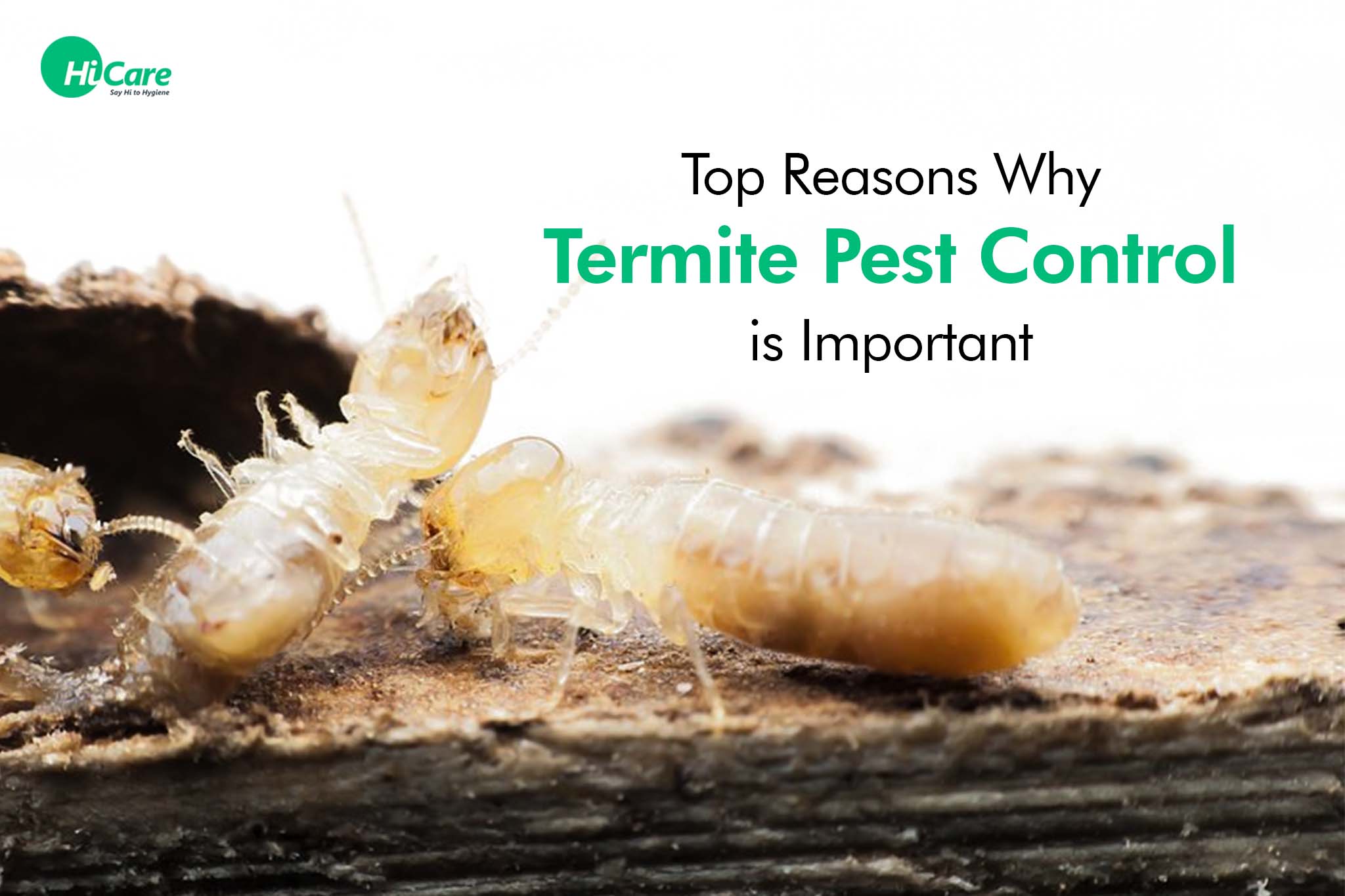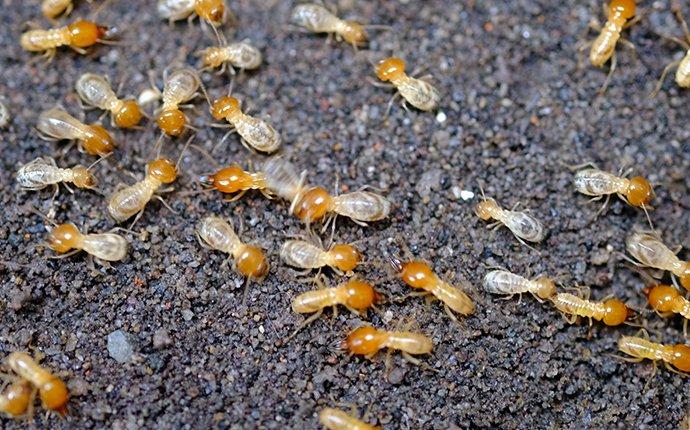Comprehensive Termite Control: Shield Your Residential Or Commercial Property with Expert Services
Comprehensive Termite Control: Shield Your Residential Or Commercial Property with Expert Services
Blog Article
Ecological Influence of Insect Control: Balancing Performance With Sustainability
The ecological impact of insect control is a crucial problem that needs a fragile balance in between attaining performance in managing insects and making certain sustainability of our ecological communities. From the usage of harmful chemicals that permeate into our soil and water to the unintentional repercussions on non-target types, the consequences of conventional insect control techniques are significant.
Damaging Chemicals in Parasite Control
The application of damaging chemicals in bug control positions significant environmental and health and wellness dangers that call for cautious consideration and mitigation techniques. Pesticides, herbicides, and insecticides are typically made use of to remove insects, yet their extensive application can lead to unplanned effects. These chemicals can infect dirt, water resources, and the air, influencing not just the targeted parasites but likewise helpful bugs, wildlife, and people.

To address these threats, incorporated insect administration (IPM) techniques are being promoted as a much more lasting option. IPM includes a mix of methods such as organic control, habitat adjustment, and the targeted usage of pesticides as a last resource (ant control forest nc). By adopting an alternative technique to pest control, we can lessen the ecological and health impacts related to dangerous chemicals while successfully taking care of pest populations
Effect on Non-Target Types
Thinking about the unplanned repercussions of bug control techniques, the effect on non-target varieties is a vital aspect that requires thorough examination. While parasite control actions intend to target particular parasites, other microorganisms in the environment might be unintentionally affected. Non-target types, including beneficial bugs, birds, creatures, and even plants, can experience straight or indirect injury from chemical applications or organic control methods.
Chemicals can have sub-lethal or deadly results on non-target types. As an example, insecticides created to combat a specific insect bug might harm pollinators like bees or all-natural killers such as ladybugs. Additionally, chemical residues can collect in the setting, affecting non-target organisms with time. Organic control representatives, if not species-specific, can pose dangers to unplanned targets, disrupting the ecological balance.
To mitigate the effect on non-target varieties, incorporated parasite administration (IPM) approaches that stress an all natural technique to pest control are suggested. These methods prioritize using environmentally pleasant techniques, lessening damage to beneficial organisms while effectively taking care of pest populaces. Carrying out extensive risk analyses and keeping an eye on the results of pest control initiatives are necessary action in safeguarding non-target types and promoting total environment health and wellness.
Soil and Water Contamination
Unintentional environmental effects of bug control methods expand beyond influencing non-target types, with significant effects for soil and water contamination. Chemicals, herbicides, and chemical fertilizers made use of in insect control can seep right into the soil and infect groundwater, positioning a threat to both earthbound and aquatic ecological communities. Dirt contamination can interrupt the balance of bacteria important for vitamins and mineral cycling and plant development, causing lowered dirt fertility and performance. Moreover, these chemicals can persist in the environment for prolonged durations, building up in the dirt and potentially going into the food cycle.
Water contamination is an additional essential concern associated with insect control practices. To mitigate dirt and water contamination from bug control activities, integrated pest management strategies that focus on sustainability and lessen chemical inputs are vital.
Air Air Pollution From Pesticide Usage
Direct exposure to air-borne pesticides throughout farming applications positions a substantial worry for air pollution control procedures. They can volatilize right into the air and kind unstable natural compounds (VOCs) and various other airborne contaminants when pesticides are splashed onto crops - termite control services. These chemicals can add to the formation of ground-level ozone, a significant element of smog that can have harmful results on human health and wellness, plant efficiency, and overall air quality. In addition, pesticide drift, where chemicals are carried by the wind to unplanned areas, can cause the contamination of nearby ecological communities and water bodies.

Approaches for Lasting Parasite Control
In the realm of agricultural techniques, executing sustainable pest control methods is paramount for preserving eco-friendly equilibrium and guarding crop returns. Sustainable insect control highlights making use of eco-friendly approaches to manage pest populations properly while lessening injury to non-target organisms and ecosystems. Integrated Parasite Administration (IPM) is a commonly embraced method that combines organic, cultural, physical, and chemical control methods to attain long-term pest management remedies.
Crop turning and diversification are additionally efficient methods to disrupt pest life cycles and produce much less positive conditions for bugs to flourish. Ultimately, by incorporating these sustainable bug control techniques, farmers can attain a balance in between pest management efficiency and environmental stewardship.
Conclusion
To conclude, the environmental effect of parasite control techniques must be very carefully considered to balance efficiency with sustainability. Hazardous chemicals made use of in insect control can result in soil and water contamination, air pollution, and injury non-target varieties - ant control. It is essential to implement lasting pest control methods to lessen these negative results on the environment and advertise a healthier ecosystem for future generations
By taking on a holistic approach to pest control, we can decrease the ecological and wellness effects associated with harmful chemicals while successfully managing pest populations.

To mitigate the air contamination triggered by pesticide use, it is crucial to take on integrated pest administration methods that prioritize the use of non-chemical parasite control approaches, such important link as plant rotation, natural killers, and resistant crop selections. Lasting insect control stresses the use of ecologically friendly approaches to manage insect populations efficiently while decreasing damage to non-target microorganisms and communities. Integrated Parasite Administration (IPM) is an extensively taken on strategy that integrates organic, social, physical, and chemical control methods to accomplish long-term bug administration remedies.
Report this page